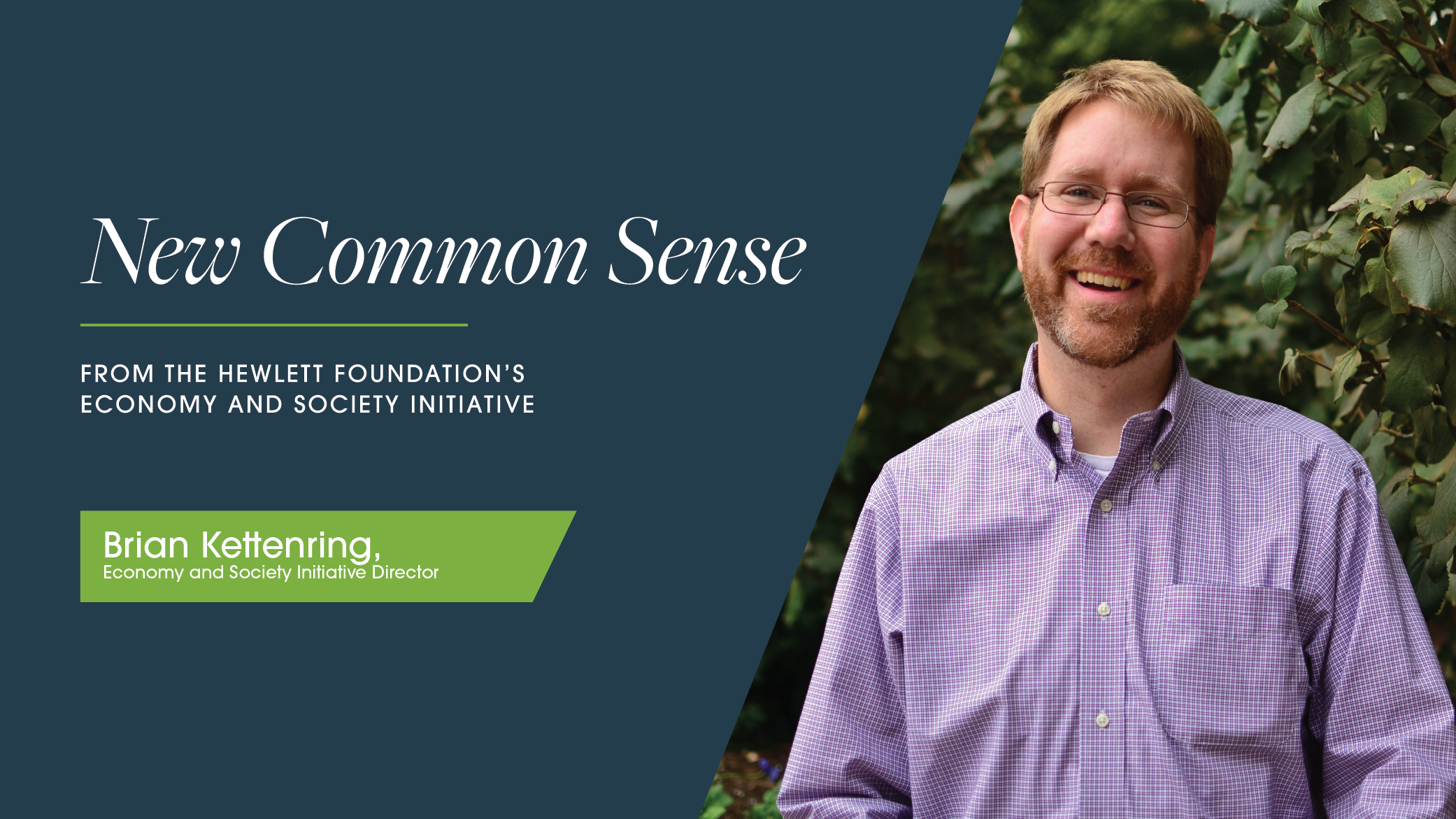A burgeoning new economy movement in Europe

Back in November — or should I say “two COVID waves ago” — I spent some time visiting a cohort of new and existing Hewlett grantees in the U.K. and Germany, including the Economic Change Unit and the Forum for a New Economy. What I found was a burgeoning intellectual and organizational energy consonant with the findings of Juha Leppänen and his team at Demos Helsinki. As the report indicates, the new economy field in Europe is highly pluralistic in terms of theories of change, areas of focus, “tones of voice,” and approaches to the work. Moreover, the field is strongest in Western Europe and is particularly well-developed in the U.K. I came away impressed with our grantees and their allies, and with the collaborative spirit and ambition of the sector.
On a Friday night in November I found myself in dialogue with 25 new-economy thinkers and strategists in London, hosted by the New Economics Foundation, a Hewlett grantee and one of the anchor institutions of the sector. Economist Eric Beinhocker from INET Oxford was there, as were campaigners working across a range of issues (finance, housing, climate, and more), policy experts, and communicators. We talked about the state of new economy work in Europe and did some trans-Atlantic strategizing. I asked Miatta Fahnbulleh, the chief executive of the New Economics Foundation, how she’d characterize the state of the ecosystem in the U.K. and she had this to say: “There is a growing new economy movement that is intellectually confident and shaping the policy debate in the U.K. It spans from grassroot activists to more traditional think tanks, bringing together that powerful combination of organizing and idea generation. Together it has the potential to build real power for change — but we have yet to organize ourselves effectively and work collectively as a movement to realize this potential. That must be the priority for the next few years.”
In Germany, I found that the movement was more fledgling but growing quickly, with a number of new organizations founded in recent years, including new grantees Zoe Institute and the Network for Pluralist Economics. Even as these groups have been strengthening their organizational structures and positioning themselves for growing impact, it was clear that they were already delving into strategies to alter the policy discourse and advance new intellectual frontiers in the teaching and practice of economics. For an example, look no further than the debate over the nature of growth in Europe, which is reckoning with the challenges of balancing prosperity with planetary collapse, looking with a critical eye at the notion that green growth can “decouple” rising GDP from consumption sufficient to the scale of the climate crisis.
Having a new, more favorable, policymaking context helps too, as is the case with the chancellorship of Olaf Scholz. I asked Jonathan Barth, Managing Director at Zoe, about the evolving context in Germany, and he cited the interplay between the openings in his home country and the broader European dynamic: “The coming years are about deciding the battle for the economic paradigm of the future: a paradigm centered around fairness and sustainability, a new contract between state, society, and economy beyond neoliberalism. It is therefore all the more important that we in the E.U. can already build on such a strong network of initiatives and foundations that together can make a difference. The new German government, combined with an ambitious European Commission, presents a unique window of opportunity to translate new economic thinking into action.”
Having spent recent decades helping to build the infrastructure of the community organizing sector in the U.S., I came away feeling that in several respects the European scene is more developed than in the U.S.; in others the reverse is true. Some organizations, for example the New Economy Organisers Network (NEON), are making distinctive interventions on the landscape, taking up programmatic approaches that I hadn’t encountered before. Daniel Vockins and Ayeisha Thomas-Smith from NEON have built a key node for the sector in the U.K. by blending an essential “sectoral good” — training organizers across social movements in best-practice communications, narrative, organization, and movement-building, in the context of a strong new economy political analysis and education — while keeping one eye squarely focused on the paradigm-shift prize.
Asked about the benefits of this dual focus, Daniel observed that “NEON supports movements to run better campaigns here and now — for example by booking activists onto 2,000 TV and radio hits per year, or by coaching leaders of new economy groups to better lead their organization. But the real impact is that we’re effectively creating a cohort of new economy leaders who are working across silos and are building aligned anchor institutions on everything from the Green New Deal to healthcare.”
Clearly — and we see this in the Demos Helsinki report — there is a need for philanthropy to partner with think tanks, organizers, scholars, and advocates to build out the European new economy ecosystem and to help it more effectively coordinate for concerted action. In taking this conclusion to heart, we’re mindful that this need surely applies to other regions, which we’ll explore in future editions.
